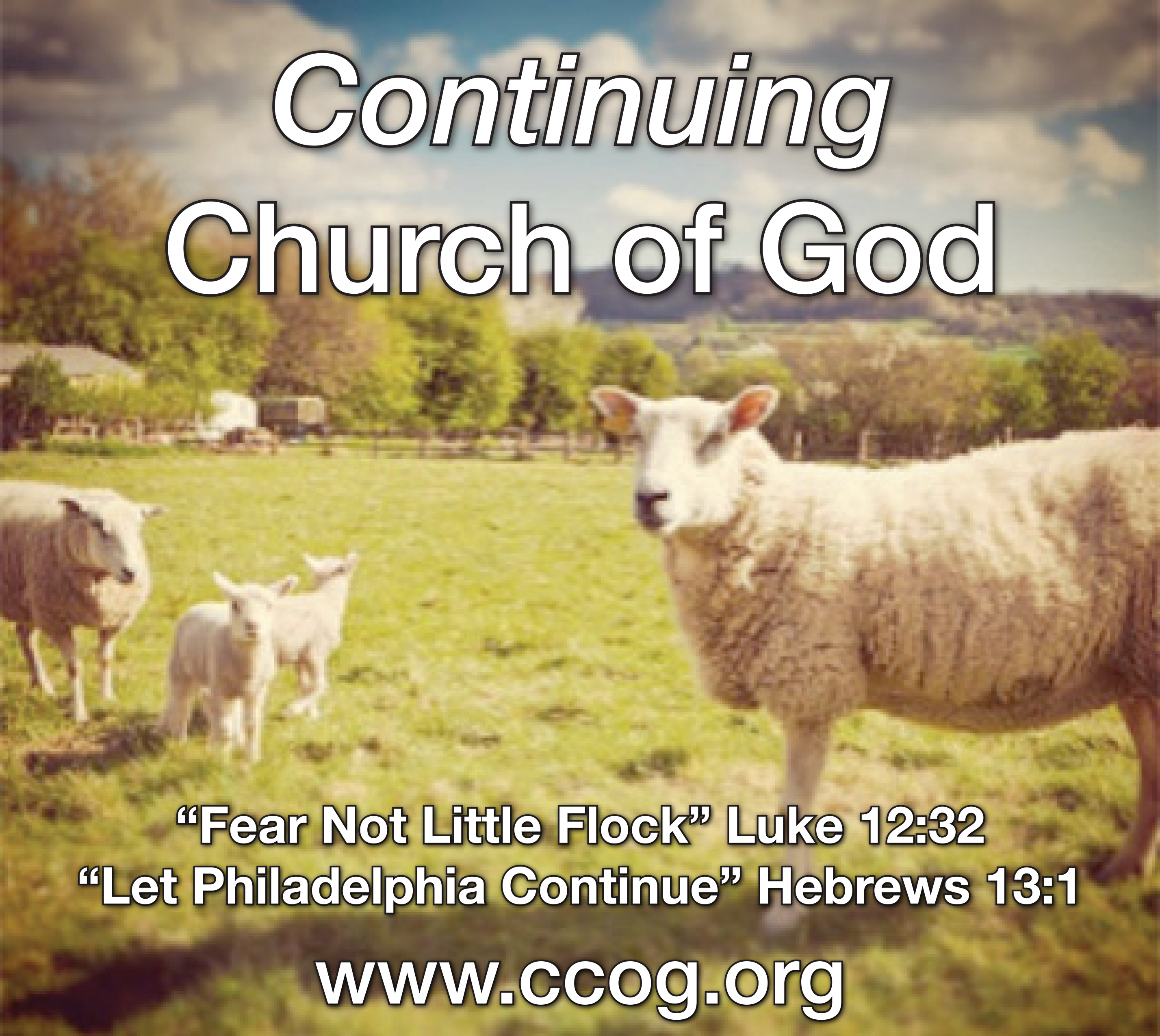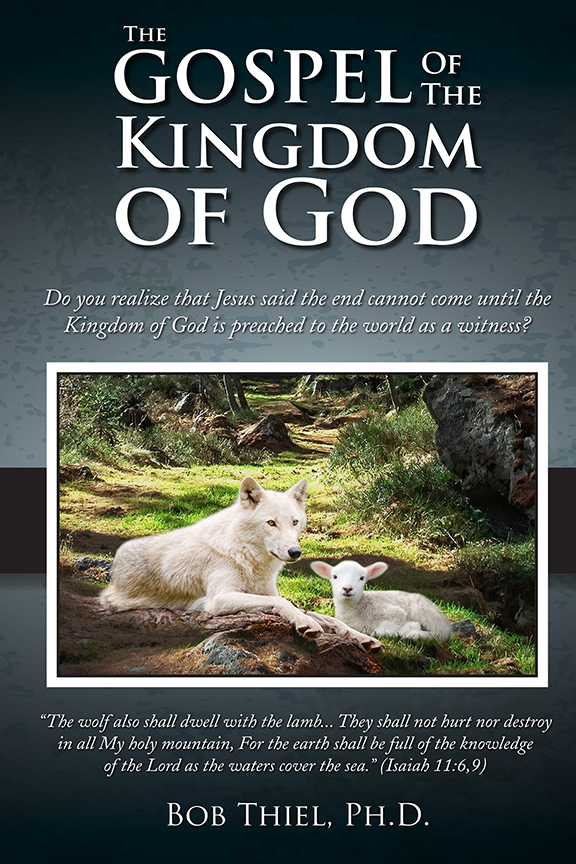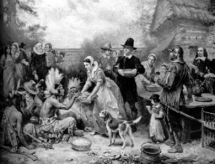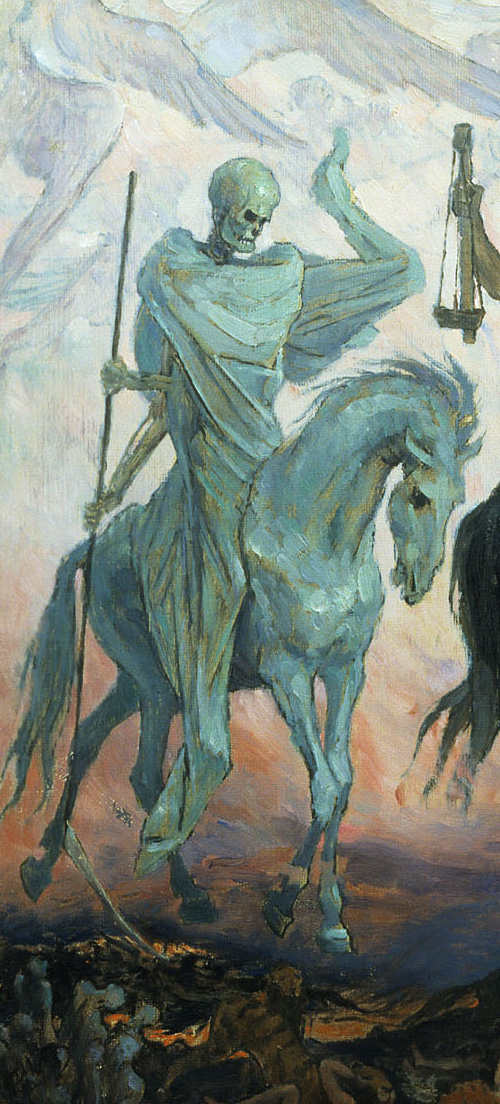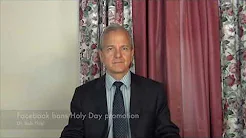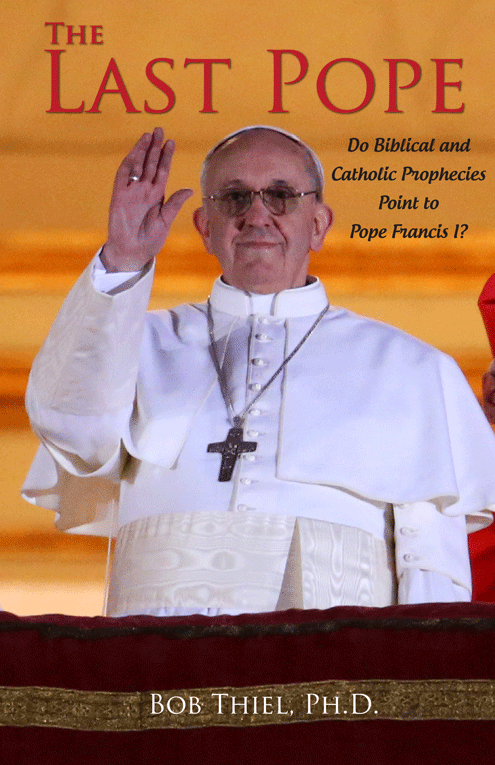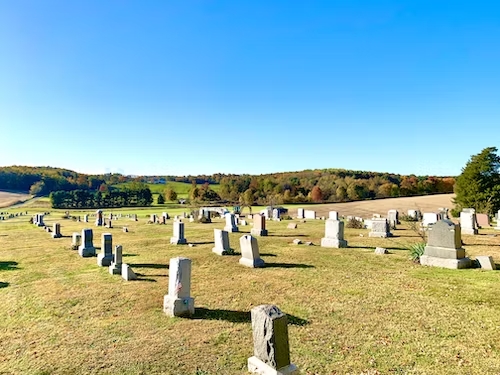
(Unsplash photo)
COGwriter
Pocket recommended the following today from the MIT Review:
The Biggest Questions: What is death?
Just as birth certificates note the time we enter the world, death certificates mark the moment we exit it. This practice reflects traditional notions about life and death as binaries. We are here until, suddenly, like a light switched off, we are gone.
But while this idea of death is pervasive, evidence is building that it is an outdated social construct, not really grounded in biology. Dying is in fact a process—one with no clear point demarcating the threshold across which someone cannot come back.
Scientists and many doctors have already embraced this more nuanced understanding of death. As society catches up, the implications for the living could be profound. “There is potential for many people to be revived again,” says Sam Parnia, director of critical care and resuscitation research at NYU Langone Health.
Neuroscientists, for example, are learning that the brain can survive surprising levels of oxygen deprivation. This means the window of time that doctors have to reverse the death process could someday be extended. Other organs likewise seem to be recoverable for much longer than is reflected in current medical practice, opening up possibilities for expanding the availability of organ donations. … Rather than thinking of death as an event from which one cannot recover, Parnia says, we should instead view it as a transient process of oxygen deprivation that has the potential to become irreversible if enough time passes or medical interventions fail. …
Everyone, of course, does eventually have to die and will someday be beyond saving.https://www.technologyreview.com/2023/11/17/1082937/what-is-death/?utm_source=pocket-newtab-en-us
Well, while humans can sometimes be revived after doctors declare someone dead, once the body has decayed past a certain point there is no earthly hope. Even the scientists at the Massachusetts Institute of Technology (MIT) realize that.
Yet, the Bible teaches the hope of the resurrection.
Even if all the flesh has decayed?
Yes.
Notice something that the prophet Ezekiel recorded:
1 The hand of the Lord came upon me and brought me out in the Spirit of the Lord, and set me down in the midst of the valley; and it was full of bones. 2 Then He caused me to pass by them all around, and behold, there were very many in the open valley; and indeed they were very dry. 3 And He said to me, “Son of man, can these bones live?”
So I answered, “O Lord God, You know.”
4 Again He said to me, “Prophesy to these bones, and say to them, ‘O dry bones, hear the word of the Lord! 5 Thus says the Lord God to these bones: “Surely I will cause breath to enter into you, and you shall live. 6 I will put sinews on you and bring flesh upon you, cover you with skin and put breath in you; and you shall live. Then you shall know that I am the Lord.”‘”
7 So I prophesied as I was commanded; and as I prophesied, there was a noise, and suddenly a rattling; and the bones came together, bone to bone. 8 Indeed, as I looked, the sinews and the flesh came upon them, and the skin covered them over; but there was no breath in them.
9 Also He said to me, “Prophesy to the breath, prophesy, son of man, and say to the breath, ‘Thus says the Lord God: “Come from the four winds, O breath, and breathe on these slain, that they may live.”‘” 10 So I prophesied as He commanded me, and breath came into them, and they lived, and stood upon their feet, an exceedingly great army.
11 Then He said to me, “Son of man, these bones are the whole house of Israel. They indeed say, ‘Our bones are dry, our hope is lost, and we ourselves are cut off!’ 12 Therefore prophesy and say to them, ‘Thus says the Lord God: “Behold, O My people, I will open your graves and cause you to come up from your graves, and bring you into the land of Israel. 13 Then you shall know that I am the Lord, when I have opened your graves, O My people, and brought you up from your graves. 14 I will put My Spirit in you, and you shall live, and I will place you in your own land. Then you shall know that I, the Lord, have spoken it and performed it,” says the Lord.’” (Ezekiel 37:1-14)
So until the resurrection what is death? Being in heaven and watching loved ones on earth as some moderns believe?
No, and that that was not the view of early Christians. Consider the following:
(RNS) The oft-cliched Christian notion of heaven — a blissful realm of harp-strumming angels — has remained a fixture of the faith for centuries…But scholars on the right and left increasingly say that comforting belief in an afterlife has no basis in the Bible and would have sounded bizarre to Jesus and his early followers…
Wright and Morse work independently of each other and in very different ideological settings, but their work shows a remarkable convergence on key points. In classic Judaism and first-century Christianity, believers expected this world would be transformed into God’s Kingdom — a restored Eden where redeemed human beings would be liberated from death, illness, sin and other corruptions.
“This represents an instance of two top scholars who have apparently grown tired of talk of heaven on the part of Christians that is neither consistent with the New Testament nor theologically coherent,” said Trevor Eppehimer of Hood Theological Seminary in North Carolina. “The majority of Christian theologians today would recognize that Wright and Morse’s views on heaven represent, for the most part, the basic New Testament perspective on heaven.”
First-century Jews who believed Jesus was Messiah also believed he inaugurated the Kingdom of God and were convinced the world would be transformed in their own lifetimes, Wright said. This inauguration, however, was far from complete and required the active participation of God’s people practicing social justice, nonviolence and forgiveness to become fulfilled… “And so it’s not a Platonic, timeless eternity, which is what we were all taught,” Wright said. “It is very definitely that there will come a time when God will utterly transform this world — that will be the age to come.” http://www.huffingtonpost.com/2012/05/17/nt-wright-christian-heaven-is-wrong_n_1524117.html
N. T. Wright’s Surprised by Hope: Rethinking Heaven, the Resurrection, and the Mission of the Church. Rob Bell’s bestseller Love Wins follows Wright in putting the post-mortem emphasis on resurrected bodies in the context of a new heaven and a new earth. More recently Howard Snyder and Joel Scandrett, in Salvation Means Creation Healed, make an extended argument that salvation focuses not just on souls and not just on people, but presents the hope of a transformed and new earth…
The eschatological hope of reembodiment and a renewed earth doesn’t belong to Paul alone. Second Peter 3:13 reads that “in accordance with his [God’s] promise, we wait for new heavens and a new earth, where righteousness is at home.” And of course there are chapters 21 and 22 of Revelation, in which the seer beholds “a new heaven and a new earth; for the first heaven and the first earth had passed away” (21:1) and focuses on a resplendent New Jerusalem, into which the nations will proceed by the light of the Lamb and offer up all their glories (22:23–24).
Such texts suggest that the new view is not so new but is indeed a recovery of an old and more decidedly biblical view of death and the afterlife. http://www.christiancentury.org/article/2012-05/life-after-life-after-death
There is no question that early Christians did not teach that believers go to heaven upon death, but instead taught that they would be later resurrected to be part of the Kingdom of God. See also Did Early Christians Teach They Were Going to Heaven?
An anonymous, likely first century, document sometimes called I Clement states:
The Apostles received the Gospel for us from the Lord Jesus Christ; Jesus Christ was sent forth from God. So then Christ is from God, and the Apostles are from Christ. Both therefore came of the will of God in the appointed order. Having therefore received a charge, and having been fully assured through the resurrection of our Lord Jesus Christ and confirmed in the word of God with full assurance of the Holy Ghost, they went forth with the glad tidings that the kingdom of God should come. (42:1-3).
Although he had a lot of heretical views, Justin Martyr (considered to be a saint by both Roman Catholics and Protestants, but not by those of us in the Church of God) in the second century wrote:
“For I choose to follow not men or men’s doctrines, but God and the doctrines [delivered] by Him. For if you have fallen in with some who are called Christians, but who do not admit this [truth], and venture to blaspheme the God of Abraham, and the God of Isaac, and the God of Jacob; who say there is no resurrection of the dead, and that their souls, when they die, are taken to heaven; do not imagine that they are Christians” (Justin. Dialogue with Trypho. Chapter 80).
Polycarp of Smyrna was an early Christian leader, who was a disciple of John, the last of the original apostles to die. Polycarp, around 110-135 A.D. taught:
Knowing, then, that “God is not mocked,” we ought to walk worthy of His commandment and glory …For it is well that they should be cut off from the lusts that are in the world, since “every lust warreth against the spirit; ” and “neither fornicators, nor effeminate, nor abusers of themselves with mankind, shall inherit the kingdom of God,” nor those who do things inconsistent and unbecoming (Polycarp. Letter to the Philippians, Chapter V. From Ante-Nicene Fathers, Volume 1as edited by Alexander Roberts & James Donaldson. American Edition, 1885).
While Greek philosophers and Mithraism taught going to heaven (see Do You Practice Mithraism?), the reality is that this was not a teaching of the New Testament nor early professors of Christ. It should also be noted that Dr. Wright was correct that Christians practiced nonviolence (see Military Service and the Churches of God: Do Real Christians Participate in Carnal Warfare?).
However, since Mithraism was a military cult, when a follower of Mithras in the fourth century (the Roman Emperor Constantine, who opposed matters he considered to be Jewish, see Did Early Christians Celebrate Easter? ) decided to attempt to blend the religion of Mithras with Greco-Roman Catholicism, most who professed Christ then not only adopted the view of heaven, but also the view that military service in this age was acceptable (see Military Service and the Churches of God: Do Real Christians Participate in Carnal Warfare? and Do You Practice Mithraism?).
What is the State of the Dead?
The dead are currently in their graves awaiting one of three resurrections (see What Did Early Christians Understand About the Resurrection?).
Death, itself, is like sleep.
The Bible teaches that when people die, they basically are like being asleep.
So what are dead now doing? The dead are dead. They are simply “sleeping” in their graves, unconscious, waiting to be called to resurrection.
They are not strumming harps nor feeling the torment of pain and torture.
Someone recently sent me a link to something that was opposed to Church of God doctrines, and used the intended pejorative term ‘soul sleep’ to denounce this doctrine it considered ‘cultic.’ Here is the logic another source uses to denounce the same doctrine:
Soul sleep is the teaching that when a person dies that his soul “sleeps” until the time of the future resurrection. In this condition, the person is not aware or conscious. …
The primary verses used to support soul sleep are found in Ecclesiastes:
- Eccl. 9:5, For the living know they will die; but the dead do not know anything, nor have they any longer a reward, for their memory is forgotten.”
- Eccl. 12:7, “then the dust will return to the earth as it was, and the spirit will return to God who gave it.”
Ecclesiastes must be understood in the context of its own commentary, which says at the opening of the book, “The words of the Preacher, the son of David, king in Jerusalem. 2 “Vanity of vanities,” says the Preacher, “Vanity of vanities! All is vanity.” 3 What advantage does man have in all his work which he does under the sun?” (Eccl. 1:1-3). The writer is telling us how things are from the human perspective from “under the sun.” He is not telling us doctrinal statements about whether or not the soul continues after death. Besides, it’s a mistake to use the Old Testament to interpret the New Testament. It is the New Testament that sheds light on the Old Testament.
In the New Testament, we see Paul say in 2 Cor. 5:8, “we are of good courage, I say, and prefer rather to be absent from the body and to be at home with the Lord.” Paul is clearly telling us that when he dies that he will go and be with the Lord. Furthermore, at the Transfiguration of Jesus (Matt. 17:1-8), we see Moses and Elijah who were alive. There was no soul sleep with them.
Therefore, the doctrine of soul sleep is incorrect. (Slick M. President and Founder of the Christian Apologetics and Research Ministry. What is soul sleep? https://carm.org/soul-sleep accessed 01/13/16)
The above is wrong. It not only wants to discount the Book of Ecclesiastes, it misunderstands the Apostle Paul’s writings, and misconstrues the Transfiguration. Plus it ignores the direct teachings in both the Old and New Testaments on the state of the dead.
Notice some passages from the Old Testament Book of Psalms:
5 For in death there is no remembrance of You; In the grave who will give You thanks? (Psalm 6:5)
3 Consider and hear me, O Lord my God; Enlighten my eyes, Lest I sleep the sleep of death; (Psalm 13:3)
6 At Your rebuke, O God of Jacob, Both the chariot and horse were cast into a dead sleep. (Psalm 76:6)
10 Will You work wonders for the dead? Shall the dead arise and praise You? (Psalm 88:10)
17 The dead do not praise the Lord, Nor any who go down into silence. 18 But we will bless the Lord From this time forth and forevermore. Praise the Lord! (Psalm 115:17-18)
The Book of Psalms, and not just the Book of Ecclesiastes, teaches that the dead know nothing and that death is like sleep. The dead must be resurrected to praise God, and that will happen (see also What Did Early Christians Understand About the Resurrections?).
Consider also the following:
14 If a man dies, shall he live again? All the days of my hard service I will wait, Till my change comes. (Job 14:14)
21 Who knows the spirit of the sons of men, which goes upward, and the spirit of the animal, which goes down to the earth? (Ecclesiastes 3:21)
Upon death, the spirit of humans returns to God (cf. 2 Corinthians 5:8). The human spirit is there, sort of like a saved computer file of your memory and character–in a sleep-like state (Psalm 13:3; 76:6)–and is saved for the resurrection (Ecclesiastes 3:21; John 3:13; Ezekiel 37:11-14; 1 Corinthians 15:50-54). But, the spirit of animals seemingly comes to an end (Ecclesiastes 3:21) as they are not ever mentioned in any resurrection.
What about the New Testament?
The idea that death is like sleep is what Jesus Himself taught:
18 While He spoke these things to them, behold, a ruler came and worshiped Him, saying, “My daughter has just died, but come and lay Your hand on her and she will live.”
19 So Jesus arose and followed him, and so did His disciples. 20 And suddenly, a woman who had a flow of blood for twelve years came from behind and touched the hem of His garment.
21 For she said to herself, “If only I may touch His garment, I shall be made well.”
22 But Jesus turned around, and when He saw her He said, “Be of good cheer, daughter; your faith has made you well.” And the woman was made well from that hour.
23 When Jesus came into the ruler’s house, and saw the flute players and the noisy crowd wailing, 24 He said to them, “Make room, for the girl is not dead, but sleeping.” And they ridiculed Him.
25 But when the crowd was put outside, He went in and took her by the hand, and the girl arose. 26 And the report of this went out into all that land. (Matthew 9:18-26)
49 While He was still speaking, someone came from the ruler of the synagogue’s house, saying to him, “Your daughter is dead. Do not trouble the Teacher.”
50 But when Jesus heard it, He answered him, saying, “Do not be afraid; only believe, and she will be made well.” 51 When He came into the house, He permitted no one to go in except Peter, James, and John, and the father and mother of the girl. 52 Now all wept and mourned for her; but He said, “Do not weep; she is not dead, but sleeping.” 53 And they ridiculed Him, knowing that she was dead.
54 But He put them all outside, took her by the hand and called, saying, “Little girl, arise.” 55 Then her spirit returned, and she arose immediately. (Luke 8:49-55)
11 These things He said, and after that He said to them, “Our friend Lazarus sleeps, but I go that I may wake him up.”
12 Then His disciples said, “Lord, if he sleeps he will get well.” 13 However, Jesus spoke of his death, but they thought that He was speaking about taking rest in sleep.
14 Then Jesus said to them plainly, “Lazarus is dead” (John 11:11-14).
In each of the above cases, the person was dead, but basically because this was NOT the permanent, second, death. Jesus said the person was sleeping. All who sleep in the grave will be resurrected and hear His voice (John 5:28). Jesus showed a foretaste of this by resurrecting those He did.
As far as the Transfiguration supposedly disproving this goes, notice what the Bible actually teaches:
1 Now after six days Jesus took Peter, James, and John his brother, led them up on a high mountain by themselves; 2 and He was transfigured before them. His face shone like the sun, and His clothes became as white as the light. 3 And behold, Moses and Elijah appeared to them, talking with Him. 4 Then Peter answered and said to Jesus, “Lord, it is good for us to be here; if You wish, let us make here three tabernacles: one for You, one for Moses, and one for Elijah.”
5 While he was still speaking, behold, a bright cloud overshadowed them; and suddenly a voice came out of the cloud, saying, “This is My beloved Son, in whom I am well pleased. Hear Him!” 6 And when the disciples heard it, they fell on their faces and were greatly afraid. 7 But Jesus came and touched them and said, “Arise, and do not be afraid.” 8 When they had lifted up their eyes, they saw no one but Jesus only.
9 Now as they came down from the mountain, Jesus commanded them, saying, “Tell the vision to no one until the Son of Man is risen from the dead.” (Matthew 17:1-9)
Notice that Jesus said the Transfiguration was a VISION. Something related to the future. Not something that already happened.
Moses has not yet been resurrected nor has Elijah.
Consider that God called David “a man after His own heart” (1 Samuel 13:14). Yet, after Jesus was resurrected, notice what the Apostle Peter said:
29“ Fellow Israelites, I can tell you confidently that the patriarch David died and was buried, and his tomb is here to this day. 30 But he was a prophet and knew that God had promised him on oath that he would place one of his descendants on his throne. 31 Seeing what was to come, he spoke of the resurrection of the Messiah, that he was not abandoned to the realm of the dead, nor did his body see decay. 32 God has raised this Jesus to life, and we are all witnesses of it. 33 Exalted to the right hand of God, he has received from the Father the promised Holy Spirit and has poured out what you now see and hear. 34 For David did not ascend to heaven … (Acts 2:29-34, NIV).
David has not yet been resurrected, nor is he in heaven. Nor is anyone other than Jesus, the Father, and the angels.
But what about 2 Corinthian 5:8 and desiring to be being absent from the body? Does that not prove that ‘soul sleep’ was not taught?
No.
Notice what Pionius of Smyrna taught in the middle of the third century:
When Pionius had been nailed down the public executioner said to him once again: “Change your mind and the nails will be taken out.”
But he answered: “I felt that they are in to stay.”
Then after a moment’s reflection he said: “I am hurrying that I may awake all the more quickly, manifesting the resurrection from the dead.” (The Martyrdom of Pionius and his Companions, Chapter 21. Text from H. Musurillo, The Acts of the Christian Martyrs (Oxford, 1972), 137-167. http://archive.is/abf7S accessed 10/17/15)
Pionius desired to be with God quickly, but he understood that this would happen in the resurrection, which to him would seem to be the instant after he was killed.
As far as ‘soul sleep’ goes, notice what some of what the Apostle Paul was inspired to write:
29 For he who eats and drinks in an unworthy manner eats and drinks judgment to himself, not discerning the Lord’s body. 30 For this reason many are weak and sick among you, and many sleep. (1 Corinthians 11:29-30)
12 Now if Christ is preached that He has been raised from the dead, how do some among you say that there is no resurrection of the dead? 13 But if there is no resurrection of the dead, then Christ is not risen. 14 And if Christ is not risen, then our preaching is empty and your faith is also empty. 15 Yes, and we are found false witnesses of God, because we have testified of God that He raised up Christ, whom He did not raise up — if in fact the dead do not rise. 16 For if the dead do not rise, then Christ is not risen. 17 And if Christ is not risen, your faith is futile; you are still in your sins! 18 Then also those who have fallen asleep in Christ have perished. 19 If in this life only we have hope in Christ, we are of all men the most pitiable. 20 But now Christ is risen from the dead, and has become the firstfruits of those who have fallen asleep. 21 For since by man came death, by Man also came the resurrection of the dead. 22 For as in Adam all die, even so in Christ all shall be made alive. 23 But each one in his own order: Christ the firstfruits, afterward those who are Christ’s at His coming. (1 Corinthians 15:12-23)
51 Behold, I tell you a mystery: We shall not all sleep, but we shall all be changed — 52 in a moment, in the twinkling of an eye, at the last trumpet. For the trumpet will sound, and the dead will be raised incorruptible, and we shall be changed. 53 For this corruptible must put on incorruption, and this mortal must put on immortality. 54 So when this corruptible has put on incorruption, and this mortal has put on immortality, then shall be brought to pass the saying that is written: “Death is swallowed up in victory.” (1 Corinthians 15:51-54).
14 Therefore He says:
“Awake, you who sleep, Arise from the dead, And Christ will give you light.” (Ephesians 5:14)
14 For if we believe that Jesus died and rose again, even so God will bring with Him those who sleep in Jesus.
15 For this we say to you by the word of the Lord, that we who are alive and remain until the coming of the Lord will by no means precede those who are asleep. 16 For the Lord Himself will descend from heaven with a shout, with the voice of an archangel, and with the trumpet of God. And the dead in Christ will rise first. 17 Then we who are alive and remain shall be caught up together with them in the clouds to meet the Lord in the air. And thus we shall always be with the Lord. 18 Therefore comfort one another with these words. (1 Thessalonians 4:14-18)
It is proper for Christians to teach and believe that death is like sleep. Christians are to be comforted by God’s plan, which includes the dead being asleep until they are resurrected.
Those who condemn “soul sleep” are also condemning Jesus and the Apostle Paul.
Did early Christians and others who professed Christ continue to teach this?
Yes.
The Letter to the Corinthians, also known as 1 Clement (though it does not state that Clement wrote it) from the late first century, teaches the following:
24 Let us consider, beloved, how the Lord continually proves to us that there shall be a future resurrection, of which He has rendered the Lord Jesus Christ the first-fruits by raising Him from the dead. Let us contemplate, beloved, the resurrection which is at all times taking place. Day and night declare to us a resurrection. The night sinks to sleep, and the day arises; the day [again] departs, and the night comes on. Let us behold the fruits [of the earth], how the sowing of grain takes place.
44 Our apostles also knew, through our Lord Jesus Christ, that there would be strife on account of the office of the episcopate. For this reason, therefore, inasmuch as they had obtained a perfect fore-knowledge of this, they appointed those [ministers] already mentioned, and afterwards gave instructions, that when these should fall asleep, other approved men should succeed them in their ministry. (1 Clement, chapters 24, . Translated by John Keith. From Ante-Nicene Fathers, Vol. 9. Edited by Allan Menzies. (Buffalo, NY: Christian Literature Publishing Co., 1896.
Notice what bishop/pastor Polycrates of Ephesus taught in the late second century:
We observe the exact day; neither adding, nor taking away. For in Asia also great lights have fallen asleep, which shall rise again on the day of the Lord’s coming, when he shall come with glory from heaven, and shall seek out all the saints. Among these are Philip, one of the twelve apostles, who fell asleep in Hierapolis; and his two aged virgin daughters, and another daughter, who lived in the Holy Spirit and now rests at Ephesus; and, moreover, John, who was both a witness and a teacher, who reclined upon the bosom of the Lord, and, being a priest, wore the sacerdotal plate. He fell asleep at Ephesus. And Polycarp in Smyrna, who was a bishop and martyr; and Thraseas, bishop and martyr from Eumenia, who fell asleep in Smyrna. Why need I mention the bishop and martyr Sagaris who fell asleep in Laodicea, or the blessed Papirius, or Melito, the Eunuch who lived altogether in the Holy Spirit, and who lies in Sardis, awaiting the episcopate from heaven, when he shall rise from the dead ? All these observed the fourteenth day of the passover according to the Gospel, deviating in no respect, but following the rule of faith. And I also, Polycrates, the least of you all, do according to the tradition of my relatives, some of whom I have closely followed. For seven of my relatives were bishops; and I am the eighth. And my relatives always observed the day when the people put away the leaven. I, therefore, brethren, who have lived sixty-five years in the Lord, and have met with the brethren throughout the world, and have gone through every Holy Scripture, am not affrighted by terrifying words. For those greater than I have said ‘ We ought to obey God rather than man’…I could mention the bishops who were present, whom I summoned at your desire; whose names, should I write them, would constitute a great multitude. And they, beholding my littleness, gave their consent to the letter, knowing that I did not bear my gray hairs in vain, but had always governed my life by the Lord Jesus (Polycrates as cited in Eusebius. The History of the Church, Book V, Chapter XXIV, Verses 2-7 . Translated by A. Cushman McGiffert. Digireads.com Publishing, Stilwell (KS), 2005, p. 114).
Notice that five times, Polycrates, who claimed his teachings came from the Bible and the Apostles Philip and John referred to death as being like sleep. Various leaders of the Greco-Roman churches (including Roman Catholic and Eastern Orthodox saints) also taught this in the second and third centuries (see Did Early Christians Believe that Humans Possessed Immortality?).
Hippolytus was one of the Church of Rome’s greatest early theologians according to The Catholic Encyclopedia. Notice what he wrote in the early third century:
For concerning the general resurrection and the kingdom of the saints, Daniel says: “And many of them that sleep in the dust of the earth shall awake, some to everlasting life, and some to shame and everlasting contempt.” And Isaiah says: “The dead shall rise, and those in the tombs shall awake, and those in the earth shall rejoice.” And our Lord says: “Many in that day shall hear the voice of the Son of God, and they that hear shall live” (Hippolytus. On the End of the World, Chapter XXXVI. Excerpted from Ante-Nicene Fathers, Volume 5. Edited by Alexander Roberts & James Donaldson. American Edition, 1886. Online Edition Copyright © 2005 by K. Knight).
The fourth century Greco-Roman bishop Ambrose of Milan taught that although some deny the resurrection, death is like sleep:
It is a cause for wonder that though they do not believe in the resurrection, yet in their kindly care they make provision that the human race should not perish, The immortality of the soul may be believed by those who deny the resurrection of the body, and was taught by many philosophers amongst the heathen. The resurrection of the body is a matter of divine revelation, and the very highest and best amongst the heathen seem not to have admitted it even as a speculation. and so say that souls pass and migrate into other bodies that the world may not pass away. But let them say which is the most difficult, for souls to migrate, or to return; come back to that which is their own, or seek for fresh dwelling places. But let those who have not been taught doubt. For us who have read the Law, the Prophets, the Apostles, and the Gospel it is not lawful to doubt. For who can doubt when he reads: “And in that time shall all thy people be saved which is written in the book; and many of them that sleep in the graves of the earth shall arise with one opening, these to everlasting life, and those to shame and everlasting confusion. And they that have understanding shall shine as the brightness of the firmament, and of the just many shall be as the stars for ever.”Well, then, did he speak of the rest of those that sleep, that one may understand that death lasts not for ever, which like sleep is undergone for a time, and is put off at its time; and he shows that the progress of that life which shall be after death is better than that which is passed in sorrow and pain before death, inasmuch as the former is compared to the stars, the latter is assigned to trouble…We have seen, then, how grave an offence it is not to believe the resurrection; for if we rise not again, then Christ died in vain, then Christ rose not again (Ambrose of Milan. Book II. On the Belief in the Resurrection, verses 65-66,102).
Protestants may wish to consider what Martin Luther wrote on 13 January 1522:
It is probable, in my opinion, that, with very few exceptions indeed, the dead sleep in utter insensibility till the day of judgment… On what authority can it be said that the souls of the dead may not sleep out the interval between earth and heaven… (Luther M. Translated by W. Hazlitt. The life of Luther written by himself. M. Michelet, ed. Bohn’s Standard Library. G. Bell, 1904, p. 133)
So, even Martin Luther somewhat understood that death is like sleep.
The Bible teaches “the dead know nothing” (Ecclesiastes 9:5).
So, what is death?
It is a time of unconsciousness awaiting resurrection.
And let me add that the Bible shows that ALL will be resurrected, but that those in the first resurrection are blessed:
15 For this we say to you by the word of the Lord, that we who are alive and remain until the coming of the Lord will by no means precede those who are asleep. 16 For the Lord Himself will descend from heaven with a shout, with the voice of an archangel, and with the trumpet of God. And the dead in Christ will rise first. 17 Then we who are alive and remain shall be caught up together with them in the clouds to meet the Lord in the air. And thus we shall always be with the Lord. 18 Therefore comfort one another with these words. (1 Thessalonians 4:15-18)
4 And I saw thrones, and they sat on them, and judgment was committed to them. Then I saw the souls of those who had been beheaded for their witness to Jesus and for the word of God, who had not worshiped the beast or his image, and had not received his mark on their foreheads or on their hands. And they lived and reigned with Christ for a thousand years. 5 But the rest of the dead did not live again until the thousand years were finished. This is the first resurrection. 6 Blessed and holy is he who has part in the first resurrection. Over such the second death has no power, but they shall be priests of God and of Christ, and shall reign with Him a thousand years. …
11 Then I saw a great white throne and Him who sat on it, from whose face the earth and the heaven fled away. And there was found no place for them. 12 And I saw the dead, small and great, standing before God, and books were opened. And another book was opened, which is the Book of Life. And the dead were judged according to their works, by the things which were written in the books. 13 The sea gave up the dead who were in it, and Death and Hades delivered up the dead who were in them. And they were judged, each one according to his works. 14 Then Death and Hades were cast into the lake of fire. This is the second death. 15 And anyone not found written in the Book of Life was cast into the lake of fire. (Revelation 20:4-6, 11-13)
As far as the second death goes, that is annihilation.
Jesus confirmed that souls can and will be destroyed when He taught:
28 And do not fear those who kill the body but cannot kill the soul. But rather fear Him who is able to destroy both soul and body in hell {Gehenna} (Matthew 10:28).
Perhaps the most famous passage in the New Testament is John 3:16. It states:
16 For God so loved the world that He gave His only begotten Son, that whoever believes in Him should not perish but have everlasting life.
Notice the contrast above. Humans would perish (and this means eternally, since all die physically) if God had not loved the world enough to send Jesus so that the believers could have everlasting life.
Since Jesus said that souls can be destroyed, when does that happen?
It happens to those who experience what the Bible calls the second death.
The wicked who will not repent will be totally destroyed:
1 Do not fret because of evildoers, Nor be envious of the workers of iniquity. 2 For they shall soon be cut down like the grass, And wither as the green herb. … 9 For evildoers shall be cut off; But those who wait on the Lord, They shall inherit the earth. 10 For yet a little while and the wicked shall be no more; Indeed, you will look carefully for his place, But it shall be no more. … 20 But the wicked shall perish; And the enemies of the Lord, Like the splendor of the meadows, shall vanish. Into smoke they shall vanish away. … 28 For the Lord loves justice, And does not forsake His saints They are preserved forever, But the descendants of the wicked shall be cut off. … 38 But the transgressors shall be destroyed together; The future of the wicked shall be cut off. (Psalm 37:1-2,9-10,20,28,38)
2 As smoke is driven away,
So drive them away;
As wax melts before the fire,
So let the wicked perish at the presence of God. (Psalm 68:2)
1 “For behold, the day is coming,
Burning like an oven,
And all the proud, yes, all who do wickedly will be stubble.
And the day which is coming shall burn them up,”
Says the Lord of hosts,
“That will leave them neither root nor branch.
2 But to you who fear My name
The Sun of Righteousness shall arise
With healing in His wings;
And you shall go out
And grow fat like stall-fed calves.
3 You shall trample the wicked,
For they shall be ashes under the soles of your feet
On the day that I do this,”
Says the Lord of hosts. (Malachi 4:1-3)
The Bible calls this the ‘second death’:
11… He who overcomes shall not be hurt by the second death. (Revelation 2:11)
6 Blessed and holy is he who has part in the first resurrection. Over such the second death has no power, but they shall be priests of God and of Christ, and shall reign with Him a thousand years. (Revelation 20:6)
14 Then Death and Hades were cast into the lake of fire. This is the second death. (Revelation 20:14)
8 But the cowardly, unbelieving, abominable, murderers, sexually immoral, sorcerers, idolaters, and all liars shall have their part in the lake which burns with fire and brimstone, which is the second death. (Revelation 21:8)
Thus, it is a type of death, but permanent. It is not eternal torturing like many claim. Jesus came so we would not have to PERISH THAT WAY, but have eternal life (John 3:16).
But none have to face the second death as God will offer salvation to all–the called in this age (see the free online book: Is God Calling You?) and all others in the age to come after the second resurrection (see the free online book: Universal OFFER of Salvation, Apokatastasis: Can God save the lost in an age to come? Hundreds of scriptures reveal God’s plan of salvation).
Science does not understand death nor God’s plan, but God does and death fits as part of His loving plan for you and all others. More on that plan can be found in the free online book: The MYSTERY of GOD’s PLAN: Why Did God Create Anything? Why Did God Make You?
Those interested in early Christianity may wish to check out the following to learn more:
What Happens After Death? Is death like sleep, or is that a cultic idea? Can you speak to the dead? Here is a link to a related sermon: What really happens after death?
A Better Resurrection Is it better to be called now? Is it better to be Philadelphian? Here is a link to a related sermon: The Better Resurrection.
What Did Early Christians Understand About the Resurrections? Is there more than one future resurrection? Did early Christians teach a physical resurrection? Did early Christians teach three resurrections? Here is a link to a related sermon: Understanding the Resurrections.
The Second Death The New Testament speaks of something called the “second death.” Who will be subject to it? How does it end? Here is a link to a related sermon: First death, Second death.
Study the Bible Course Lesson 15: What is “Hell”? What are the different words translated as “hell” in English? Does Gehenna mean something different than Hades. What happens? What about worms dying not?
Are The Wicked Tormented Forever or Burned Up? How does one explain Revelation 14:11 in light of Malachi 4:3? What happens to the incorrigibly wicked?
Did Early Christians Teach They Were Going to Heaven? What do the Bible and scholars teach? What about ‘near-death experiences’? Here is a link to a related sermon: Heaven and Christianity. A shorter video is Dante Aligheri’s Inferno, Heaven, and The Real Hope.
Did Early Christians Believe that Humans Possessed Immortality? What does John 3:16, and other writings, tell us? Did a doctrine kept adopted from paganism? Here is a YouTube video titled Are humans immortal?
Beliefs of the Original Catholic Church: Could a remnant group have continuing apostolic succession? Did the original “catholic church” have doctrines held by the Continuing Church of God? Did Church of God leaders uses the term “catholic church” to ever describe the church they were part of? Here are links to related sermons: Original Catholic Church of God?, Original Catholic Doctrine: Creed, Liturgy, Baptism, Passover, What Type of Catholic was Polycarp of Smyrna?, Tradition, Holy Days, Salvation, Dress, & Celibacy, Early Heresies and Heretics, Doctrines: 3 Days, Abortion, Ecumenism, Meats, Tithes, Crosses, Destiny, and more, Saturday or Sunday?, The Godhead, Apostolic Laying on of Hands Succession, Church in the Wilderness Apostolic Succession List, Holy Mother Church and Heresies, and Lying Wonders and Original Beliefs. Here is a link to that book in the Spanish language: Creencias de la iglesia Católica original.
Hope of Salvation: How the Continuing Church of God Differs from Protestantism The CCOG is NOT Protestant. This free online book explains how the real Church of God differs from mainstream/traditional Protestants. Several sermons related to the free book are also available: Protestant, Baptist, and CCOG History; The First Protestant, God’s Command, Grace, & Character; The New Testament, Martin Luther, and the Canon; Eucharist, Passover, and Easter; Views of Jews, Lost Tribes, Warfare, & Baptism; Scripture vs. Tradition, Sabbath vs. Sunday; Church Services, Sunday, Heaven, and God’s Plan; Seventh Day Baptists/Adventists/Messianics: Protestant or COG?; Millennial Kingdom of God and God’s Plan of Salvation; Crosses, Trees, Tithes, and Unclean Meats; The Godhead and the Trinity; Fleeing or Rapture?; and Ecumenism, Rome, and CCOG Differences.
Is God Calling You? This booklet discusses topics including calling, election, and selection. If God is calling you, how will you respond? Here is are links to related sermons: Christian Election: Is God Calling YOU? and Predestination and Your Selection; here is a message in Spanish: Me Está Llamando Dios Hoy? A short animation is also available: Is God Calling You?
Universal OFFER of Salvation, Apokatastasis: Can God save the lost in an age to come? Hundreds of scriptures reveal God’s plan of salvation Will all get a fair chance at salvation? This free book is packed with scriptures showing that God does intend to offer salvation to all who ever lived–the elect in this age, and the rest in the age to come. Here is a link to a related sermon series: Universal Offer of Salvation 1: Apocatastasis, Universal Offer of Salvation 2: Jesus Desires All to be Saved, Mysteries of the Great White Throne Judgment (Universal Offer of Salvation part 3), Is God Fair?, Will God Pardon the Ignorant?, Can God Save Your Relatives?, Babies, Limbo, Purgatory and God’s Plan, and ‘By the Mouth of All His Holy Prophets’.
The MYSTERY of GOD’s PLAN: Why Did God Create Anything? Why Did God Make You? This free online book helps answers some of the biggest questions that human have, including the biblical meaning of life. Here is a link to three related sermons: Mysteries of God’s Plan, Mysteries of Truth, Sin, Rest, Suffering, and God’s Plan, Mystery of Race, and The Mystery of YOU. Here is a link to two videos in Spanish: El Misterio del Plan de Dios and El Misterio de Satanás, el Misterio de la Verdad, el Misterio del Reposo.


